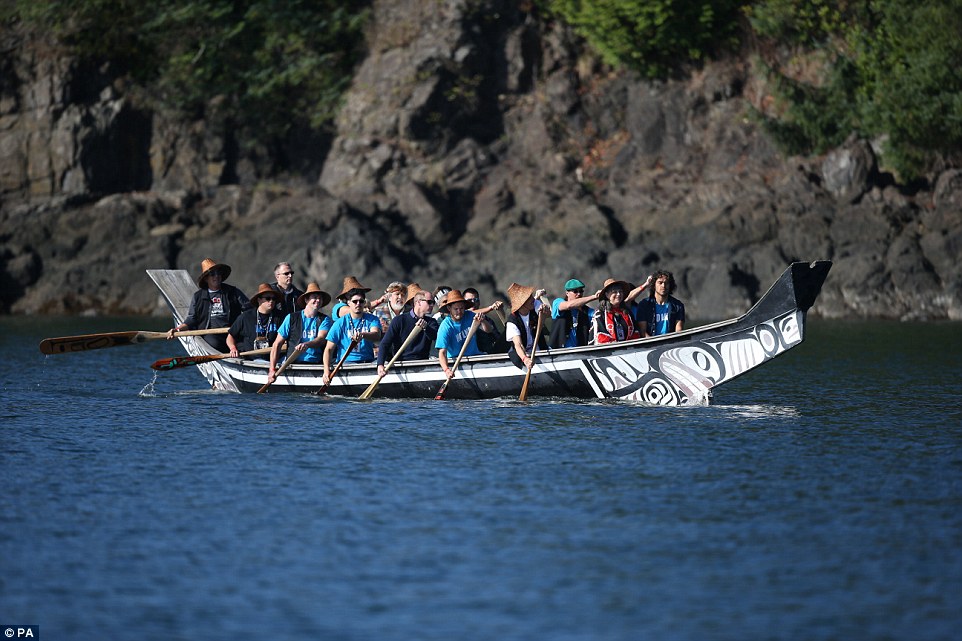Hello everyone! I’m excited to be starting a new term at UBC, and to be taking another class with a focus on Canadian history and Native cultures.
Who am I?
I’m a 4th year English major here at UBC. I was born and raised in the US and am still living in Washington, commuting to UBC three days a week. Thank goodness for dual citizenship and cheap Canadian tuition!
Why did I choose this class?
Having been born and raised in the US, and considering myself American first and foremost, my experience with these subjects is probably much different than that of students born and raised in Canada. This is exciting for me, as it means I get the opportunity to interact with a field of knowledge that’s completely new and fresh.
Also, it’s online. This means less walking around UBC campus in the rain. I consider this a plus.
What do I expect to gain from this course?
Primarily, I hope to gain a greater understanding of the history of the Canadian and Indigenous peoples and of their interactions. I’ve always been fascinated by the native peoples of North America, especially the Apache peoples of the American Southwest, the Sioux of the Great Plains, and the Haida peoples of the Pacific Northwest. I have a great love of military science and history, and have been interested in these peoples and their cultures ever since an old anthropology professor of mine (a member of the Salish people himself) called the Haida “the Vikings of the Pacific coast.” I’ve thoroughly enjoyed learning about native peoples and cultures through this lens, looking at the similarities and differences in warfare between the native peoples of North America and similar bronze-age/early iron-age peoples in Europe and Asia, and especially at the naval traditions of ocean-going peoples like the Haida and Salish. The fact that these peoples could travel from the Alaskan coast as far south as California in canoes carrying twenty to thirty people is remarkable and is a testament to their highly developed naval tradition.
However, I’m under no illusions that my personal interests haven’t left significant gaps in my knowledge of the indigenous peoples, especially in a Canadian context. I know next to nothing about Canadian history, and while I’ve heard things like the “residential school system” mentioned on more than a few occasions during my time at UBC my knowledge on these subjects rarely extends beyond a simple news article. I don’t even know when to capitalize words like “native” and “indigenous” and when not to, as I’m sure this and future blog posts will attest to (at least until one of my fellow students corrects me). Thus, I’m sure that almost everything we’ll be studying over the course of this term will be new to me, which I find exciting.
Thank you for reading, I’m looking forward to learning with you all!
Also, I know how much Canadians love the British royals, so I’ve attached an image of your beloved Prince and Princess in a traditional Haida canoe.

Works Cited
CBC News. “A History of Residential Schools in Canada.” CBC, 16 May 2008, https://www.cbc.ca/news/canada/a-history-of-residential-schools-in-canada-1.702280. Accessed 12 January 2020.
English, Rebecca. “Prince William and Kate Middleton Arrive on a Remote Island in a Traditional War Canoe.” Daily Mail, 30 Sept. 2016, https://www.dailymail.co.uk/news/article-3816426/Wills-Kate-arrive-remote-island-traditional-WAR-CANOE-British-Columbia-charm-locals-penultimate-day-tour-Canada.html. Accessed 12 January 2020.
“Warfare.” Canadian Museum of History, https://www.historymuseum.ca/cmc/exhibitions/aborig/haida/havwa01e.html. Accessed 12 January 2020.